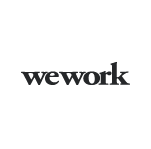上海 Shanghai: 14+7
14 Days: Centralized medical quarantine
7 Days: Community health monitoring
(At least 6 nucleic acid tests during the 21 days)
Inbound travelers who arrive in Shanghai with final destinations in Jiangsu, Zhejiang or Anhui provinces can be quarantined in the city for three days and then transferred to their destinations for another 11 days of quarantine
On the fourth day of quarantine, specially-assigned persons from each province will pick up travelers in a special vehicle to prevent cross-infection of the coronavirus.
But if the person has tested positive for the virus, has suspected symptoms or has come into close contact with confirmed cases, they should be quarantined in Shanghai for treatment or further observation.
北京 Beijing: 14+7+7
14 Days: Centralized medical quarantine
7 Days: Home isolation
7 Days: Community health monitoring
Inbound individuals through other domestic cities have to wait 21 days before entering the Chinese capital, and seven-day health monitoring is required after their entrance.
For those with an inbound period of less than 21 days but are already in Beijing, the "7+7" isolation and health monitoring have to be completed here, local authorities said.
During the seven-day health monitoring, people can follow their normal routines while avoiding gatherings. They are also advised to regularly report their health conditions to local communities.
广东 Guangdong: 14+7
14 Days: Centralized medical quarantine
7 Days: Community health monitoring
江苏 Jiangsu: 14+14
14 Days: Centralized medical quarantine
14 Days: Community health monitoring
(3 nucleic acid tests on 3rd, 7th and 14th day during the community health monitoring)
浙江 Zhejiang: 14+7
14 Days: Centralized medical quarantine
7 Days: Community health monitoring
During the health monitoring period, the color of your Health Code will be YELLOW. You are allowed to go outside your apartment, but should avoid public transport and public indoor spaces, like mall, museum, cinema. You will take another nucliec acid test on the last day of health monitoring period, if it is negative, then you health code will be green.
山东 Shandong: 14+7
14 Days: Centralized medical quarantine
(1 nucleic acid test + 1 antibody test upon arrival)(4 nucleic acid test during the centralized medical quarantine)7 Days: Community health monitoring
(1 nucleic acid test on the last day of community health monitoring)
四川 Sichuan: 14+7
14 Days: Centralized medical quarantine
7 Days: Community health monitoring
(2 nucleic acid tests during the community health monitoring)
辽宁 Liaoning: 14+7+7
14 Days: Centralized medical quarantine
(2 nucleic acid test + 1 antibody test during the centralized medical quarantine)
7 Days: Home isolation
(1 nucleic acid test on the last day during home isolation)
7 Days: Centralized medical quarantine
(3 nucleic acid tests on 3rd, 7th and 14th day during the community health monitoring)
湖北 Hubei: 14+14
14 Days: Centralized medical quarantine
(2 nucleic acid test + 1 antibody test during the centralized medical quarantine)
14 Days: Home isolation
(2 nucleic acid test during home isolation)
陕西 Shannxi: 14+7+7
14 Days: Centralized medical quarantine
7 Days: Home isolation
7 Days: Community health monitoring
福建 Fujian: 14+7
14 Days: Centralized medical quarantine
(2 nucleic acid test on the 1st and last day during the centralized medical quarantine)7 Days: Home isolation
河南 Henan: 14+7
14 Days: Centralized medical quarantine
7 Days: Home isolation
天津 Tianjin: 14+7
14 Days: Centralized medical quarantine
7 Days: Home isolation
湖南 Hunan: 14+7+7
14 Days: Centralized medical quarantine
7 Days: Home isolation
7 Days: Community health monitoring
重庆 Chongqing: 14+7+7
14 Days: Centralized medical quarantine
7 Days: Home isolation
7 Days: Community health monitoring
安徽 Anhui: 14+7+7
14 Days: Centralized medical quarantine
7 Days: Home isolation
7 Days: Community health monitoring
吉林 Jilin: 21+7
21 Days: Centralized medical quarantine
(If you enter China from other cities, where you finish the 14 days centralized medical quarantine, you still need to take 7 days centralized medical quarantine in Jilin.)
7 Days: Home isolation
If you are from a county where is experiencing surging COVID-19 cases, then you will take 28 days centralized quarantine.
黑龙江 Heilongjiang: 14+14
14 Days: Centralized medical quarantine
(2 nucleic acid test + 1 antibody test during the centralized medical quarantine)
14 Days: Home isolation
(3 nucleic acid test + 1 antibody test during the quarantine)
For more information, please contact us: 8621 - 5178 5021
As the COVID-19 virus has continued to spread globally, healthcare workers in Guangzhou have recently reported a number of newly confirmed cases and asymptomatic infections. Currently, we are taking swift and decisive actions to curb the spread of the virus. All of our approaches are science-based, and we need every resident in our city to cooperate with us. Foreign nationals have always been important members of our community, and we have always prioritized their health and safety. We now urge you to take the following actions:
First, support our control and prevention policies. Our healthcare professionals are treating patients, tracing contacts, conducting COVID-19 tests, and disinfecting key areas within the city. If you are approached by government employees, community organizers, or healthcare workers, please, support them by answering their questions. Our control and prevention professionals might also need to clean and disinfect any contaminated surfaces touched by people who test positive. We urge you to postpone or cancel large-scale events and suspend non-essential group activities. Be cautious when you invite guests to your private residence. Family gatherings must be limited to 10 people.
Second, get vaccinated. Widespread vaccinations are a critical tool to achieve herd immunity. We recommend that you and your family get vaccinated to protect yourself and others, unless special circumstances prevent you from doing so. Please, consult a healthcare provider to assess the risks.
Third, follow the latest updates from official sources. We recommend that you follow these public accounts on WeChat: Updates in Guangzhou, Guangzhou Foreign Affairs Office, and Guangzhou Health Commission. Do not trust nor spread unverified information. If you need interpretation services in English, Japanese, or Korean, please, call the Guangzhou Multilingual Public Service Hot-line at 960169. The hotline interpreters will connect you to Guangzhou’s Public Health Hot-line (12320) to answer your enquiries.
Fourth, stay safe by taking some simple precautions, such as physical distancing, wearing a mask, keeping rooms well ventilated, avoiding crowds, and washing your hands. These are still the most simple and effective ways to curb the spread of the virus. If you have a fever or cough, please, go to one of the fever clinics and voluntarily offer the necessary information. Pay attention to food safety, and only purchase frozen food from authorized supermarkets. Avoid visiting any medium-risk areas.
Guangzhou Foreign Affairs Office
May 30, 2021
After more than a year, the world is still battling against COVID-19, prompting many to wonder when people-to-people exchanges will return to normal, when China will open its doors to the world, and to what extent vaccines and mutated variants will impact the resumption of international travels.
Zhang Wenhong, a leading infectious disease expert, believes that China will be able to reopen to countries with good inoculation and low infection rates in the first half of 2022, but that will still depend on how many people in the country have been inoculated.
Countries with a higher inoculation rate such as Israel, the US and the UK will make deals to resume people-to-people exchanges in the second half of this year. But the date for a resumption of global travel remains unknown, as that would be determined by the overall vaccination rate and speed of mutated variants, said Zhang at the Boao Forum for Asia in Qingdao, East China's Shandong Province on Wednesday.
Asked whether it would be necessary to receive COVID-19 vaccines every year just like influenza vaccines, Zhang said it depends on what percentage of people who have received a vaccine become re-infected, though most assume that it would be necessary, because with the passing of time, the protection generated by any vaccine will fade.
Also, there is no evidence so far to indicate that mutated variants have escaped from vaccines, and the virus has not generated new serotypes, which means "we have to wait for more data to decide if human beings have to get inoculated repeatedly," Zhang noted.
Gao Fu, an academician from the Chinese Academy of Sciences and head of the Chinese Center for Disease Control, recently said that it seemed that the virus evolves like an influenza virus.
"We probably need to receive jabs against COVID-19 every year, just like how we coexist with influenza," said Gao, adding that when there is an immunity barrier against COVID-19, the regular jabs will be used to prevent critical cases rather than simply avert infections.
To reach herd immunity against COVID-19, China will have to vaccinate 80 percent of its population, and this target is likely to be reached by the end of this year, following stronger public willingness to receive jabs propelled by recent waves of epidemic resurgence in some places, said Chinese top epidemiologist Zhong Nanshan.
China's speed in administering vaccines has been accelerating recently with more than 700 million doses administered across the country by Wednesday, data from the National Health Commission showed.
The intervals per 100 million doses have gradually become shorter, from the previous 25 days, 16 days, nine days, seven days and now only five days, statistics indicated.
The urban employees’ average salary of the year 2020 has been released as RMB124056 (RMB10338/month), an increase of 7.9% over the previous year.
From July 1st, the adjustment of contribution base of Social Insurance and House Fund for the year 2021 has started.
Social Insurance
The contribution base of Social Insurance:
The upper limit: RMB31014/month;
The lower limit: RMB5975/month.
(Considering the impact of novel coronavirus pneumonia on economic and social development, the lower limit of the Social Insurance contribution base will be divided into two years to reduce the burden of employers. The lower limit is determined by the arithmetic average of the average salary in 2019 and 2020)
House Fund
The contribution base of House Fund:
The upper limit: RMB31014/month;
The lower limit: RMB2480/month.
Average Salary
The "average salary of employees in the previous year" involved in the city's talents introduction policy shall be RMB10338/month.
Minimum Salary
Minimum Salary Standard:
for month: RMB2590
for hour: RMB23
For more information please contact us:021 - 5178 5021
On 1st of July 2021, the Ministry of Human Resources and Social Security recently released the Guidelines for the Conclusion of Electronic Labor Contracts. According to the document, lawfully concluded electronic labor contracts are protected by law; employers and employees should fulfill their respective obligations under the electronic labor contract.
According to the Guidelines, if an employer plans to conclude an electronic labor contract with employees, they should do it through a platform.
If both parties agree to conclude an electronic labor contract, the employer should explicitly inform employees of the procedures for concluding the contract, and matters needing attention, as well as how to check and download the electronic contract; the employer must not charge any fee from employees.
For more information please call us: 8621 - 5178 5021

“
Please accept this recommendation for Lillian Zhou and the entire staff at J&K Investment Consulting (Shanghai) Co. , Ltd.
My Company The Charles Boggini Company from Coventry Connecticut USA engaged Lillian to assist in the set up of a trading company in Shanghai China also know as a WOFE . From the first meeting with Lillian I felt comfortable that J&K could handle all the details needed to complete the job.
The entire process was handled in a professional manner and the communication was very clear. Lillian and her staff were able to translate and explain clearly the details all the way thru the process. I was so comfortable with the WOFE setup that I continued with Lillian and J & K to mange my accounting and company details for the past two full year.
The staff is very efficient and detail oriented. I would be happy to refer them to any prospective client.
David C. Boggini
Founder & CEO, Boggini Trading (Shanghai) Co., Ltd

“
We have been cooperating with J & K in the past 6 years and we highly appreciated their visa services for our foreign employees. The number of our foreign employees is big and they work for our Shanghai head office and branches in different cities in China, to
control the employment and visa risk is not quite easy. Fortunately,we found J & K , they are our trustworthy visa consultant, their professional acknowledges and working schedule make us have no doubts and troubles when we are facing the employment and visa issues, no matter application, modification, extension and termination. We highly appreciated their efforts and hope to continue to cooperate and recommend J & K to you.
Vicky Zhou
C&B Manager, ASC Fine Wines

“
We have cooperated with J&K for many years, we deeply felt the professional services of them. When dealing with more complicated work, they always give quick feedback and provide effective solutions. J&K staff are very patient, meticulous and trustworthy. -- Lily Fang, Legal Department of WeWorkJ&K has participated in many company registration and change projects of us. For many years, they have been holding a professional and meticulous working attitude and provided us with extremely satisfactory services. J&K not only excellently completed various project tasks, but also provided us with solutions through their senior experience and knowledge to solve our problems and become an indispensable right-hand assistant in our work. Over the years, J&K and Wework have experienced growth and development together, they help their customers stay invincible in the changeable market competition. I believe that in the future, J&K will be able to serve more and better customers with unlimited future. -- Nancy Hong, Treasury Analyst of WeWork

“
What I admire most about the J & K team is their attitude towards service details. Each of them is striving for perfection. The J & K team has professional background and many years of experience, providing us with extremely satisfactory and pleasant service. Communication is the most important problem in the service, Every time J & K confirms and explains all problems in the work carefully and patiently, even the smallest details they try to ensure that there is no error. J & K not only provides us with high-quality services, but also provides many effective and feasible suggestions and guidance. J & K won the praise of our company, each of us is very willing to recommend such an excellent team to every potential customer.
Jane Hu
Centre Manager, ARCC Spaces



Leave us a message
Interested to Know More?
Please complete the form beside and we will get in touch with you soon!
Content with an asterisk (*) is required.